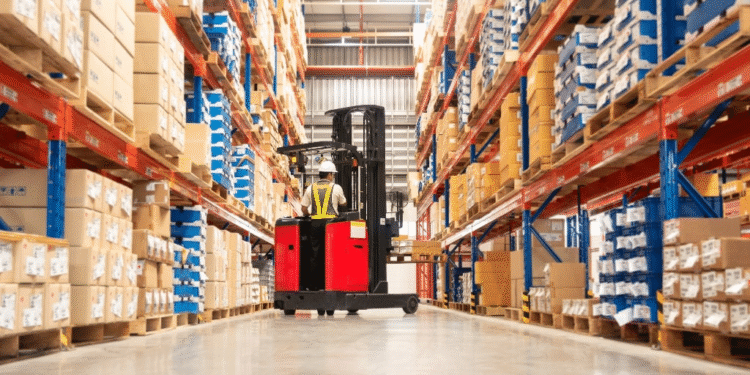The logistics industry is a critical component of the global economy, ensuring that goods are moved efficiently from suppliers to consumers. Central to this intricate network is the supply chain, which can be significantly optimised through effective management and strategic partnerships. Among the pivotal elements that drive efficiency within supply chains is the concept of 3PL warehousing, a system that allows businesses to streamline their distribution and storage operations.
The Role of 3PL Warehousing in Modern Supply Chains
Third-Party Logistics (3PL) providers are companies that offer outsourced logistics services to businesses, encompassing transportation, warehousing, and distribution. The idea of 3PL warehousing is not simply to provide a storage space; it is an integrated service designed to enhance the supply chain’s proficiency from end to end.
The utilisation of 3PL warehousing allows businesses to focus on their core competencies, such as product development and marketing, leaving the complex logistics to experts who can perform them efficiently and cost-effectively. This partnership can be transformative for companies looking for agility and scalability in their operations.
The Strategic Advantages of Third-Party Logistics Partnerships
One of the most compelling reasons for a business to embrace 3PL warehousing is the strategic advantage it creates. By outsourcing to logistics experts, companies gain access to a wealth of knowledge and experience in supply chain optimisation. This includes best practices in inventory management, order processing, and transportation management, which can reduce costs and improve service levels.
In addition to expertise, 3PL providers offer a network of warehousing facilities and distribution centres that can be leveraged to position products closer to end consumers. This reduces delivery times and costs, making businesses more competitive in the market.
Technology Integration and 3PL Warehousing
Modern 3PL providers are increasingly utilising cutting-edge technology to bring even greater value to their partnerships. Warehouse management systems (WMS), real-time inventory tracking, and advanced data analytics are just a few of the technological tools that are integrated into 3PL services.
Technology enables seamless communication between businesses and their 3PL partners, allowing for better coordination and visibility across the supply chain. This transparency is crucial for anticipating demand, managing stock levels, and preventing the costly issue of overstocking or stockouts.
Customisation and Flexibility in 3PL Services
Every business has unique needs and challenges within its supply chain. Recognising this, 3PL warehousing services are highly customisable, offering solutions tailored to specific industries and business models. Whether a company deals in perishable goods, high-value electronics, or large machinery, there is a 3PL solution that can be adapted to its requirements.
Moreover, the flexibility of 3PL services allows businesses to scale their logistics operations up or down according to seasonal demand, market expansion, or other factors affecting the volume of goods they need to handle. Such elasticity ensures that logistics capabilities align with business goals at all times.
Cost Savings and Operational Efficiency Through 3PL Warehousing
Cost is always a decisive factor in business operations, and logistics can represent a significant portion of these costs. By leveraging 3PL warehousing, companies can achieve substantial savings through shared resources. Shared warehousing offers economies of scale, as multiple businesses use the same facility, workforce, and equipment, thereby reducing individual operational expenses.
Additionally, 3PL services often include consolidated shipping, which combines smaller shipments bound for the same destination into a single transport, reducing shipping costs and carbon footprint. Such efficiencies are not only good for the bottom line but also support sustainability efforts.
Enhancing Customer Satisfaction with Effective 3PL Warehousing
The end goal of any supply chain is to deliver products to customers in a timely and satisfactory manner. 3PL warehousing plays a crucial role in achieving this by ensuring that products are available when and where they are needed. This reliability leads to increased customer satisfaction and loyalty.
By outsourcing logistics to a 3PL, businesses can also offer faster shipping options, more accurate order fulfilment, and better returns management, all of which contribute to a positive customer experience.
Navigating Global Supply Chain Challenges with 3PL Expertise
The global supply chain is fraught with challenges, from customs clearance and international regulations to transportation disruptions and cultural differences. Navigating these challenges requires a level of expertise that may be beyond the capacity of many businesses.
3PL providers with international experience can manage these complexities, ensuring compliance and minimising risks associated with global trade. This is particularly valuable for companies looking to expand into new markets, as it can accelerate time to market and reduce costly missteps.
Conclusion
Efficiency in the supply chain is not merely about cutting costs or increasing speed; it’s about creating a seamless, responsive, and adaptable logistics framework that supports a business’s strategic objectives. 3PL warehousing emerges as an essential component in this framework, offering the expertise, technology, customisation, and flexibility needed to navigate an ever-changing commerce landscape.
For those businesses seeking to enhance their supply chain operations, the power of 3PL warehousing should not be underestimated. It is an investment in both the present and future of their logistics requirements, ensuring that they can deliver exceptional value to their customers while staying ahead of the competition.
As companies continue to recognise the benefits of third-party logistics solutions, partnerships such as the one with Specialised Logistics can provide them with the tools required to master efficiency in their supply chain operations, leveraging the full potential of their logistics strategies.













